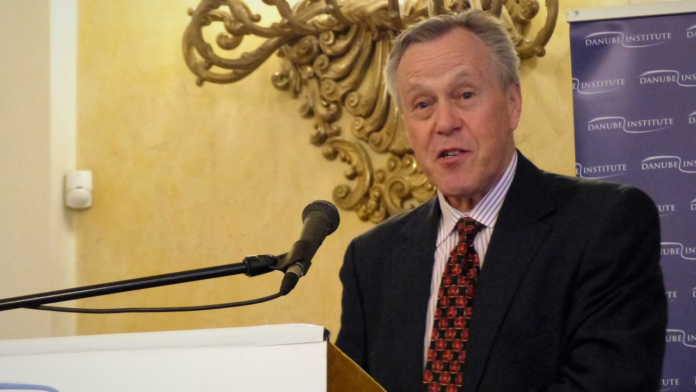Charles Crawford, a former British ambassador in Eastern Europe, is to lead faculty members at a leadership development programme organised by TEXEM UK, a United Kingdom based firm founded by British Nigerian, Dr Alim Abubakre.
A statement on TEXEM website, www.texem.co.uk says Crawford is an Oxford and Harvard-trained British Diplomat.
He is the winner of the equivalent of two Oscars and a former British Ambassador to Bosnia and Poland.
He has inspired thousands of leaders globally on how to win in a world increasingly shaped by geopolitics and volatility.
He will be among the four faculty members delivering the TEXEM programme.
The programme is titled, Strategic Agility and Inspiring Change: Fuelling Sustainable Success, and is taking place from Aug. 26 to Aug. 29 at Hilton Liverpool.
Other faculty members include Prof. Rodria Laline, inventor of the first chip used on the first ATM card, Former Senior Vice President of Oracle in Asia Pacific and Harvard, INSEAD.
IESE Professor, Oxford trained Prof. Roger Delves, Board Member at Global Firm at the age of 30 is expected too.
Dr Alim Abubakre, Advisory Board Member of London Business School Africa Society and Founder of TEXEM, UK is the fourth faculty member.
Speaking on how to inspire strategic agility and successfully inspire change, Crawford said anticipating and adapting to market dynamics in rapidly changing environments is among top traits of a strategic leader.
He said that a good lesson for business leaders operating in the present increasingly volatile world is for them never to think that buoyant market conditions are doomed to last for ever.
Using his experience in managing complex transitions in volatile regions like the former Yugoslavia, Russia, and South Africa as case studies, Crawford said leaders are likely to be as good as their followers.
“Any major change programmes have winners and losers, and the losers tend to be highly motivated and disruptive. It’s important to be ambitious but also realistic.
“The Serbia Prime Minister Zoran Djindjić was assassinated because he underestimated his enemies. But then how do you make concessions to dangerous enemies without demoralising friends?
“You will glean fresh insights and challenge assumptions around this through this forthcoming TEXEM programme, Strategic Agility and Inspiring Change: Fuelling Sustainable Success,” he explained.
Crawford also spoke on how the concept of ‘Strategic Agility’ in business align with the diplomatic agility demonstrated by him during his service in regions undergoing significant political and social transformation.
“Diplomacy is typically not ‘agile’ and does not aim to be. Rather the emphasis is on patience and method, albeit with appropriate energy and ambition.
“Plus, it’s fine to be agile. But what if your agility makes you jump into a deep dark hole? Maybe it all comes down to willingness to take smart risks – and being good at taking smart risks!
“During this TEXEM programme, Strategic Agility and Inspiring Change: Fuelling Sustainable Success, we will discuss actionable insights that will help leaders win,” the former Ambassador said.
Drawing from his experience as speechwriter and communicator in the Foreign and Commonwealth Office and thereafter for world leaders, he said leaders have to mobilise and motivate followers.
Crawford said this normally comes through words that explain actions.
“Far too many speeches focus on sharing ‘information’ and ignore the importance of motivation.
“Speeches don’t need to give watertight answers. It’s often enough to pose new questions or challenge old thinking without giving answers – get the audience thinking for themselves!
“That said, no speechwriter gets far if the senior speaker does not want to take any risks or say something new and challenging. ‘Let’s play it safe today’ is always a tempting way to avoid responsibility,” he said.
Crawford said the TEXEM programme will entail a methodology that encourages peer to peer learning, networking, improved self-awareness and stronger sense of purpose for leaders to achieve their goals more effectively and efficiently.



